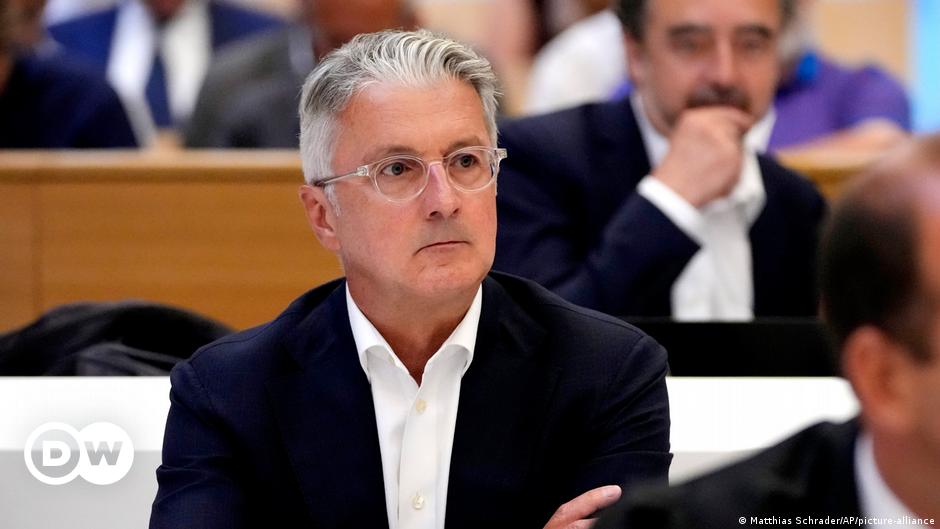Ex-Audi boss given suspended sentence in ‘dieselgate’ case

The Munich regional court on Tuesday handed former Audi boss Rupert Stadler a suspended sentence after he was convicted of fraud for his role in the diesel emissions scandal.
Under a plea deal, the former CEO last month admitted he allowed Volkswagen, Audi, and Porsche vehicles equipped with manipulating software to remain on sale even after the scandal had become public knowledge.
He was given a suspended prison sentence of one year and nine months and ordered to pay a €1.1 million ($1.2 million) fine.
What the court decided
Stadler has been on trial for fraud since 2020 and, until last month, rejected allegations that he knew vehicles made by German car giant Volkswagen had been fitted with so-called cheat devices.
He became the first top executive to stand trial in the scandal that hit Volkswagen, Audi’s parent company, and other subsidiaries.
His two co-defendants, former head of engine development Wolfgang Hatz and a former leading engineer identified under German privacy laws only as P, were also sentenced.
Hatz, a former Audi and Porsche manager, admitted to judges that he had helped arrange the installation of emissions-cheating software. He was handed a two-year suspended sentence and fined €400,000.
The Audi engineer, P, who previously confessed, was given a 21-month suspended sentence and a €50,000 fine.
These were Germany’s first criminal convictions since the emissions test issues first became known.
Volkswagen’s former CEO Martin Winterkorn was also supposed to stand trial for fraud over the scandal, but his case has been indefinitely postponed due to his poor health
What is ‘dieselgate’?
The “dieselgate” scandal dates back to 2015, when the US Environmental Protection Agency found the German automaker selling vehicles with a defeat device to cheat emissions between 2014 and 2015.
German car giant Volkswagen, whose subsidiaries include Porsche, Audi, Skoda and Seat, admitted in September 2015 that it had installed software to rig emission levels in millions of diesel vehicles worldwide.
The defeat devices made the vehicles appear less polluting under controlled conditions but then emitted more oxides of nitrogen than allowed when in normal use on the road.
lo/nm (Reuters, dpa, AFP)
While you’re here: Every Tuesday, DW editors round up what is happening in German politics and society. You can sign up here for the weekly email newsletter Berlin Briefing.
This article has been archived for your research. The original version from DW (English) can be found here.